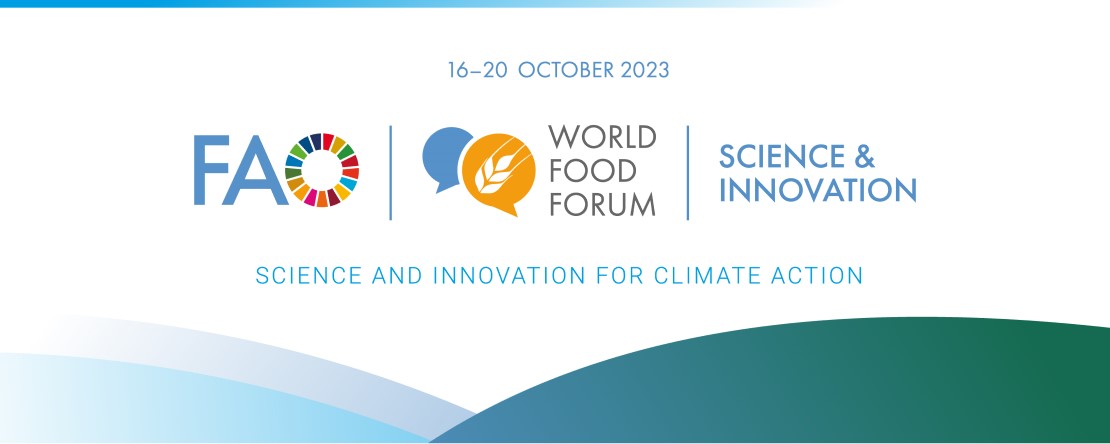
Implementing the FAO Science and Innovation Strategy and the Strategy on Climate Change in synergy
Members of the Food and Agriculture Organization of the UN (FAO) endorsed FAO’s first ever Science and Innovation Strategy and the FAO Strategy on Climate Change 2022–2031 in June 2022. They urged FAO to ensure their successful implementation in synergy in order to address climate challenges through science and innovation. In 2023 the action plans of both Strategies were finalized.
This session will showcase diverse cases of successful and synergistic implementation of the two Strategies in various thematic areas within agrifood systems, from various regions, using different types of innovations, and will share knowledge, experiences and lessons learned. It will be opened by FAO Director-General and will gather high-level panellists from various stakeholder groups and regions.
Press release

Science and Innovation Forum 2023 showcases FAO’s approach to implementing the Science and Innovation Strategy and the Strategy on Climate Change in synergy
Among the numerous events showcasing science and promising innovations for climate action, the Science and Innovation Forum also looked at how FAO is guided by the synergistic application of its two new strategies: the Science and Innovation Strategy and the Strategy on Climate Change, led by FAO Chief Scientist Ismahane Elouafi and FAO Deputy Director-General Semedo.
Speakers

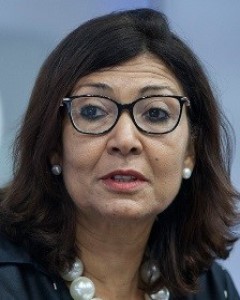
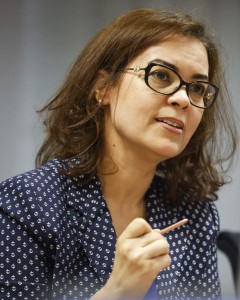
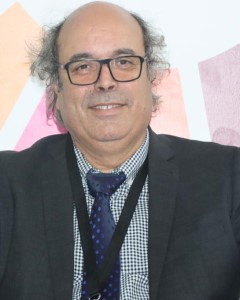
Dr. Qu Dongyu took office on 1 August 2019 as the ninth Director-General of the Food and Agriculture Organization of the United Nations (FAO) and was re-elected for a second four-year term on 2 July 2023.
Before first being elected as FAO Director-General, Dr. Qu served as China’s Vice Minister of Agriculture and Rural Affairs (MARA), where one of his achievements was to promote inclusive and innovative development and make sure information and communication technologies (ICT) were available in rural areas so that more than 400 million farmers could use their smartphones as a new farming tool. Another national initiative led by Dr. Qu was to improve reporting of wholesale prices for agricultural products in China and foster the establishment of more than 100 specialty production areas geared to making local comparative advantages work to the benefit of local farmers.
Born in 1963 to a rice-growing family in China’s Hunan Province, Dr. Qu studied horticultural science at Hunan Agricultural University and then plant breeding and genetics at the Chinese Academy of Agricultural Sciences. He later added environmental science to his knowledge portfolio while earning a PhD at Wageningen University, in the Netherlands.
Maria Helena Semedo, FAO Deputy Director-General, is an economist and politician from Cabo Verde. A leading expert in global development issues, she has worked in public service for over thirty years. She promotes an integrated, inclusive approach, resulting in greater cross-sectoral engagement and stronger strategic partnerships, better positioning FAO in its role to promote a transition to sustainable food and agriculture systems.
Before taking up her current duties in 2013, Ms Semedo served as FAO Representative in Niger, then as Deputy Regional Representative for Africa and Sub-regional Coordinator for West Africa. Prior to her international career, she was Minister for Fisheries, Agriculture and Rural Affairs from 1993 – the first-ever female minister in her country; and later Minister for Tourism, Transportation and Marine Affairs from 1995 to 1998, and then a Member of Parliament until 2003.
She has two decades of experience in agricultural research and development in Asia, Africa and the Middle East.
She is internationally known for her work on promoting neglected and underutilized crops, use of non-fresh water in agriculture, and empowerment of women in science.
Chief Engineer of Rural Engineering and Sustainable Development
Director of Strategy and Partnerships of The National Agency for the Development of Oasis and Argan Zones (ANDZOA)
He has accumulated several experiences over the last 33 years in the field of preparation, management, and implementation of development projects in vulnerable areas affected by water scarcity. He is involved through different levels of responsibilities in the agricultural sector related to sustainable development and rationalization of water resources use in the Kingdom of Morocco. He has contributed to the implementation of national and international programs and strategies aimed at the development of vulnerable areas, in particular the following:
- National Irrigation Program which aims to irrigate millions of hectares in Morocco (NIP: 1994-2005).
- Millennium Challenge Account-Maroc (MCA-Maroc: 2005-2013).
- The Strategy for the Development of the Oases and Argan Areas (SD-ZOA since 2013 to date).
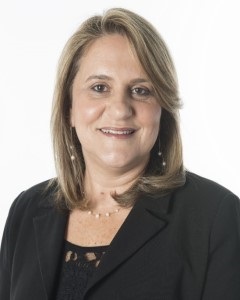
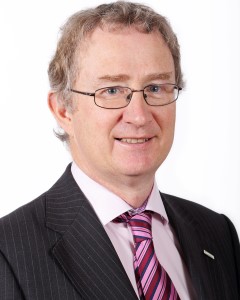
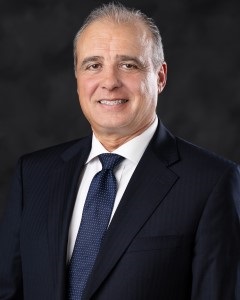
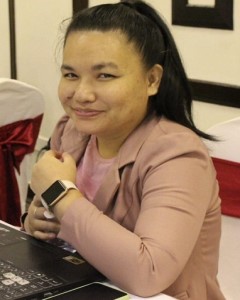
Researcher at Embrapa since 1989, she was the General Head of Embrapa Digital Agriculture, from 2015 to 2022. It was during her office that the strategic realignment of the Center took place, to better reflect its multidisciplinary and transversal role. From 2009 to 2015, she served as head of Research and Development at that same Center.
Among her areas of knowledge is the development of technologies for complex systems or interdisciplinary solutions that bring the future, which materializes in the use of tools such as Artificial Intelligence, blockchain and Internet of Things (IoT).
She assumed the Presidency of Embrapa in May 2023.
Mimmo Parisi is a Professor of Sociology and Senior Advisor for European and Data Science Development at Mississippi State University. He serves as the Executive Director of the Data Science Program. He founded the National Strategic Planning and Analysis Research Center (NSPARC), a socioeconomic data science research center at Mississippi State University, and was an early mover in Mississippi for using state data resources as an asset for improving the quality of education and social well-being in the state. Since 2019, his role has included supporting the MSU's partnerships with FAO and WFP and the university’s commitment to supporting the achievement of the United Nations’ sustainability goals, with a particular focus on providing expertise in reducing poverty and achieving zero hunger in the world. Parisi earned his Ph.D. from Penn State.
Sorlaty Sengxeu, a Geospatial specialist employed by the Department of Agricultural Land Management in the Lao People’s Democratic Republic, holds a degree in Science from the National University and boasts a decade of experience collaborating with various international partners and donors at the Ministry of Agriculture and Forestry. Her expertise lies in the realm of machine learning applications for geospatial purposes, specifically in creating agricultural land cover maps, conducting soil mapping, performing climate downscaling, and engaging in scenario modeling. Notably, she played a pivotal role as part of the pioneering team responsible for crafting the FAO national agri-environmental zoning (N-AEZ) modelling using exclusively national-level GIS capabilities. Additionally, she contributed to the development and pilot testing of the FAO pyAEZ software.
One of her outstanding achievements involves her work in assessing historical and future agricultural productivity scenarios, culminating in the formulation of policy recommendations and the creation of "storymaps" designed to make data-driven narratives readily accessible to policymakers and decision-makers.
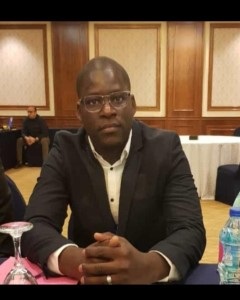
Natif du village de pécheurs de Ngor (Senegal), Khadim TINE a très tôt embrassé le métier de cuisinier, son rêve d'enfant, devenu sa passion. En 2012, il bénéficie d’un contrat de travail en France dans le cadre du dispositif « jeune professionnel » de l’Office français de l’immigration et de l’intégration (OFII). Une nouvelle aventure qui lui fera découvrir la riche gastronomie développée autour de l’huitre mais également l’ostréiculture moderne. Il a depuis entrepris de transférer ses connaissances au Sénégal et a créé en 2018 la « Cabane penché », faisant de lui le premier sénégalais à pratiquer l’ostréiculture moderne, à la lagune de la Somone. Khadim travaille actuellement à développer l’ostréiculture en tant que secteur durable et viable au Sénégal en collaboration avec les structures étatiques, la recherche scientifique et les associations de femmes ostréicoles. Il est notamment le président du RENACVAH (Réseau National des Acteurs de la Chaîne de Valeur de l'huître au Senegal), réseau mis en place et accompagné par le Programme FISH4ACP.
